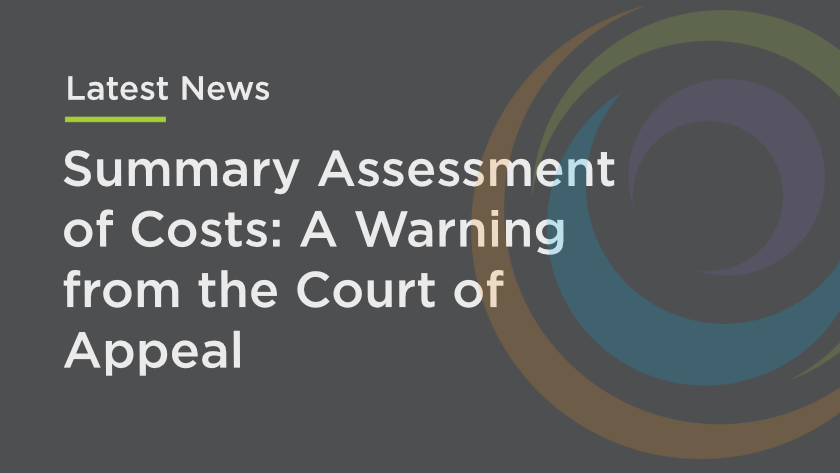Any lawyer dealing with hearings which last for less than a day, such as fast track trials or interim applications, will be familiar with the summary assessment of costs which usually follows immediately after the substantive decision. The same lawyers will also know that it is an unfortunate fact of litigation that time estimates are not always adhered to and therefore cases sometimes overrun with outstanding elements being dealt with on another occasion.
One common solution for a judge faced with insufficient time to undertake a summary assessment but having already heard the substantive matter is to decide the principle of costs and then order the assessment of the amount of those costs to be decided later, often by a different judge. This is particularly relied upon when dealing with an interim application in which a further hearing may already be scheduled or is rendered inevitable by the outcome of the application itself.
In R (Isah) v. Secretary of State for the Home Department [2023] EWCA Civ 268 the Court of Appeal has determined that this practice must cease as it is incompatible with the Civil Procedure Rules. InIsah Linden J., sitting as an appeal judge in the High Court, directed that there be a summary assessment of the costs of the appeal to be listed before a Master of the Senior Courts Costs Office if they could not be agreed between the parties. That decision was itself appealed to the Court of Appeal which considered whether there was a power to direct a summary assessment to be undertaken other than by the judge who made the order. It concluded that there was not and therefore only Linden J could determine the amount of the costs to be paid.
In reaching its conclusion the Court of Appeal considered, in particular, Part 44 of the Civil Procedure Rules and the Overriding Objective. In paragraph 41 of the judgment Asplin L.J. set out in clear terms that “the Rules as drafted leave the court in an inflexible position in which only the judge who heard the matter can make the summary assessment. There is no power to do otherwise”. The Court even went so far as to recognise that there may well be circumstances in which it was both “proportionate and just” for the assessment to be undertaken by a different judge but, nonetheless, in the absence of the Rules providing a mechanism to do so any reliance on the Overriding Objective was misconceived as it could not be used to create a power which did not exist.
The practical consequence of this judgment is clear; a single judge must now undertake the entire summary assessment procedure. Therefore it is more important than ever that time estimates are accurate and take into account the time likely to be spent on dealing with costs because, if a hearing overruns, it may be many months before the assessment can be listed before the same judge or the Court may have to resort to detailed assessment even in fairly straightforward cases, notwithstanding the time and costs involved in that procedure, as this can still be undertaken by a different judge.
It remains to be seen whether the Civil Procedure Rules Committee will re-consider the position in light of the judgment and amend the Rules so as to, in effect, reverse the decision in Isah but, for now at least, parties and the Court are stuck with the current, inflexible, summary assessment procedure.
Michael Trevelyan
Barrister

